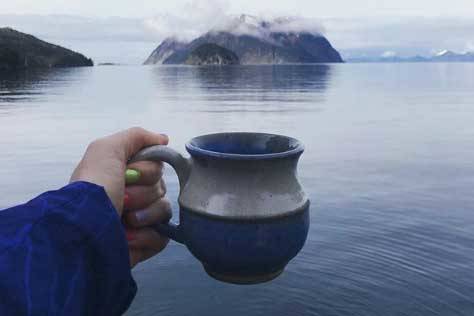I accidentally ripped my fingernail out just as I was about to meet a large group of people.
They all extended their hands toward me, looking for a shake, and although I greeted them with a smile my right hand was clenched tightly in a bloody fist around my thumb.
It wasn’t until I was back in my car 20 minutes later and saw my thumbnail hanging on by a thread that I started to freak out.
I used my nondominant hand to scrape out a text to my nurse friends laden with expletives and dripping in worry. They told me that, “Yes, it would grow back,” but, “No, you don’t need to go to the hospital.”
I spent the rest of the afternoon bemoaning my lost nail, wallowing in the pain and annoying my roommate to no end. I held small ice cubes on my thumb, hoping the pain would subside. I Googled several different variations of, “How long does it take for a thumbnail to grow back?” but never found the right combination of words to give me the response I wanted: “Immediately.”
The human thumb is an exceedingly useful thing. It sets us apart from everything else in the animal kingdom and mine was out of commission.
In the time since I lost the nail, I’ve been repeatedly told that detailing the incident and the subsequent healing process is not fun for others so I’ll just say, “Ouch.” I would forget the tragedy that had befallen my right hand, moving about my day as if my thumb was intact, but really there was a ticking time bomb attached to the end of my most used appendage, waiting for me to flip the switch during some mundane daily activity.
I ran a particularly hard mountain race where rocks fell on my newly bare thumb. Untying my shoes afterward was a unique level of torture. I struggled with every text, every undone button. Cutting onions made my eyes swell with tears for a bevy of reasons.
Eventually, though, I adapted.
Without realizing it, I was running around with my fist clenched tightly around my thumb, hiding it from handshakes or rocks or a particularly cold burst of wind.
During a long run, I noticed my left hand was open and free while my right was clenched tight.
My body didn’t want to be in pain anymore, so I started protecting myself.
As humans, our mind sets us apart from all living creatures but still has the basic, animal instinct to protect ourselves. It builds barriers, creates habits, to help us avoid pain.
I had never thought to scream wildly into the forest as I run or bike or walk, but fear has been instilled in me. Now, I see a turn in the trail and, not knowing what may lie on the other side, I’ll instinctually yell, “HEY BEAR!”
I didn’t even know what pushki looked like until I was covered in its burns, but now I always look 4 or 5 feet ahead of me, on the lookout to avoid the painful plant.
Exactly one time in my life, I was so open with my emotions that I jumped headfirst into someone. It felt like love, and for a few, lovely years it was. Then, it was gone and that hurt.
I spent months afterward searching for something or someone to tell me the cure, the immediate kind. But there’s no such thing and instead, now, I wade in the waters around this type of clarity.
Even now, as I take breaks in between typing, my fingers wrap around my nearly fully regrown thumbnail instinctually and I wonder what habits will stick with me, long after they’re useful.


